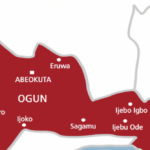No phenomenon over the past century has exposed poor governance and terrible choice of priorities all over the world as COVID-19 has. For advanced countries, it has been discovered that the promise of the welfare State – that capitalist industrialization could provide minimum welfare, including good health and education for the entire population has been abandoned in favour of more accumulation for a few dozen individuals and their companies that own most of the wealth in the world. The have fortunes they and their great grandchildren could never spend over the next century.
For the poorer countries of the world, the story is even more straight forward. The nationalist promise of welfare and security for the people was never pursued. The leadership defined its vision as crass accumulation based on the theft of the commonwealth of their Nations. Only some of the newly industrializing countries in Asia had a vision of the public good and developed quick and effective strategies to combat the virus. While the most advanced countries were focused on more massive wealth for a few individuals and ignored warnings of the impending epidemic hoping it would go away.
The governors of the poorest countries hoped the rich countries would come to rescue them only to find out the West itself needed rescue. Meanwhile, the governors of the poorest countries have become completely dependent on accessing medical care in the West and for the first time, their stolen wealth could not secure them access to Western hospitals so they and their poor will live or die by decision of the virus alone. We must not forget in this context that the stupid virus knows not wealth, race, power or ideology.
The issue COVID-19 places on the world agenda therefore is the important one of using the pandemic as an inspiration to redraft, retune and redesign public policy of all countries in favour of the common good. It is a difficult job because most countries, or rather, the leadership of most countries have lost both the desire and the skills to act in furtherance of the public good. The re-learning process is the most important issue in the world today. One example is the impact of the implementation of social distancing programme on ordinary citizens. On Wednesday, the Nigerian National Human Rights Commission revealed that in their eagerness to defend the lives of Nigerians against the threat of the virus, security agents have killed more Nigerians than the virus did within a two weeks period. Specifically, the virus killed 11 persons in Nigeria, according to data from the Nigeria Centre for Disease Control (NCDC), while security operatives caused the death of 18 people in the same period. No wonder the NHRC Executive Secretary, Tony Ojukwu, lamented the training of security agencies in violation rather than the protection of human rights. It is indeed normal for security agents to see people as a risk to the ruling class rather than citizens who should be themselves offered protection.
There is no doubt that in general social distancing is an effective policy against the virus, which cannot move itself but is spread by people moving around. Everything however is defined by context and Africa has a lot of challenges that make it difficult to effectively implement it. The most important problem is that a significant percentage of the urban poor earn their living by going out to work on a daily basis and the little earning they make that day is what they and their families would feed on. Telling them to stay indoors for weeks is a sure path to an increase in hunger, deprivation, and related mortality and morbidity. It imposed a terrible choice, stay at home and die of hunger or get out and risk being killed by the police. The response of the Nigerian government has been that they are providing palliatives in the form of food supplies and cash to the poorest, but how many, certainly not one hundred million Nigerians who form part of the poorest population in the world.
What we have not done in Nigeria and in other African countries is to think through how to adopt the general policy of social distancing to our context. I was pleased to hear that Tanzania for example decided to put on its thinking cap and worked out that both closing the border and imposing a total lockdown of the urban centres would simply not work and decided instead to focus on surveillance and testing and then locking down the specific areas where infections were spreading. Visitors into the country are also put in two weeks quarantine before they are allowed into communities. The world has become too used to generic solutions and the time for thinking out of the box has arrived. We need to acquaint ourselves with details of the epidemiological models that led to current social distancing guidelines so that we can rethink the whole process.
It is also important to repeat that COVID-19 is a new virus and specialists are just finding out how it operates. Two months ago, Western politicians and hospitals went into a frenzy of worry because they did not have enough ventilators to place patients in serious condition on. The United States in particular even engaged in airport piracy in Shanghai, China, forcibly paying for and diverting plane loads of ventilators and protective personnel equipment enroute to France and Germany to the United States. Today, they are finding out that ventilators are a death warrant for most COVID-19 patients and are now learning to offer less intrusive and more effective treatments. The whole world is therefore on a learning curve and our governments should get out of the assumption that the experts know everything and open up to more inclusive discussions on the best way forward. A number of thigs are becoming clear and should inform public policy.
The first issue is the imperative of a rapid increase in testing for the disease and tracking and isolating cases. Nigeria is boasting that we have increased our testing centres to thirteen while a country like South Korea with about a quarter of our population has about 600 test sites. We need an urgent national conversation of how to expand the availability of testing kits in the difficult international context in which we live. We have to rapidly grow a huge public health workforce for identifying suspected cases, collecting samples, and sending them into the lab for testing.
Secondly, there is consensus that constant washing of hands with clean running water is the key to survival from infection. We also know that most Nigerians have no access to clean running water. Given our context, what is the best advice for accessing more water and soap for all and the best ways to use water in bowls, kettles, buta and so on. We must stop showing video clips that suggest all of us can simply open a tap and water would flow. What of getting our plastics industry to mass produce buckets with small taps and distribute it all over the country? What agents can be used to purify water for hand washing?
Thirdly, we now know that it is useful for the wider population to use face masks – at least it stops people from touching their months and noses. It is easy for most countries to produce home-made masks for the people. This can even be done at the community level. At the same time, more sophisticated personal protection equipment for medical personnel need to be produced locally as pirate countries are clearing everything available in the “world market”.
Fourthly, we need to engage in a more scientific study of the relationship between our demography – a country with a very young population and the epidemiology of COVID-19. Can we for example impose targeted physical isolation of the elderly and other at-risk groups, while allowing more young people in the slums go out and work? What is the risk of mass revolt from hungry young people and how can we manage the risk?
In thinking about COVID-19 and our future, what is clear is that the biggest challenge we have is that of trust. Nigerians have no trust on their ruling class because they know them to be selfish, self-serving and thieves. The challenge is to start thinking and planning about how we can get a new group that would respect public trust and see their role as using public resources to promote the public good.




